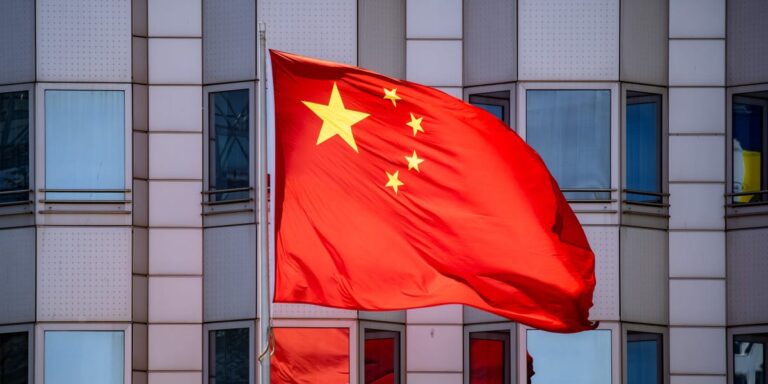- The stabbing deaths of a Japanese mother and her son have made headlines in China after a local woman died trying to protect them.
- Her death has sparked a clash between praise for the 55-year-old and a resurgence of anti-Japan posts.
- Finally, the tech giants stepped in and issued an extraordinary rebuke, deciding that nationalism had gone too far.
It is well known that Japan is disliked on Chinese social media.
The list of perceived grievances is growing, from the Nanjing Massacre during World War II to concerns that Pacific seafood may be contaminated by radioactive water from the Fukushima nuclear disaster.
Such rhetoric was fuelled again on June 24 when a man with a knife attacked a Japanese woman and her son at a school bus stop in Suzhou, injuring both of them.
But it was the third victim that captured the country’s attention: a school bus driver, 55-year-old Chinese woman named Hu Youping, who rushed to protect the two foreigners despite suffering stab wounds herself.
Police said the woman later died while receiving medical treatment. The suspect was a 52-year-old unemployed man surnamed Zhou who had recently moved to the city.
A whirlwind of emotion and debate erupted on social media, with Hu being hailed as a hero and some calling for a bus stop to be named after him, but also a surge in anti-Japanese hate speech in posts and comments suggesting the attack was justified.
As the two stories intertwined, Chinese social media companies stepped in in unison: extremism had clearly gone too far.
Tech giant Tencent issued a statement on Saturday condemning hate speech and said it would crack down on posts that “incite extreme nationalism” in connection with the Suzhou stabbing. Tencent operates WeChat, a super app that functions similarly to WhatsApp and Facebook.
NetEase, a major gaming company, made a similar statement, saying it had observed posts calling for “resisting Japan and eradicating traitors” and accusing President Hu Jintao of being a Japanese spy.
Douyin and Weibo, China’s versions of TikTok and Twitter, have publicly condemned accounts that “promote extreme xenophobia” and “encourage criminal activity in the name of patriotism.”
The platform said it had removed thousands of posts and terminated dozens of accounts.
The precarious balance between China and Japan
Condemnations of nationalism are rare on these platforms, which have been breeding grounds for inflammatory posts, such as calls to shoot down then-House Speaker Nancy Pelosi’s plane during her visit to Taiwan in 2022.
Social media in China is tightly controlled but anti-Japanese speech has been one of the few national sentiments allowed to thrive in recent years.
As of Wednesday, the main hashtag for posts about the Japanese victim of the June knife attack had been censored, but discussion of President Hu Jintao’s death and her posthumous award for bravery was still allowed.
To praise President Hu Jintao’s actions, the Japanese embassy in China flew the national flag at half-mast.
It is unclear whether China’s central government had any direct involvement in the crackdown, but the country’s social media companies have been sensitive to what the government deems acceptable, often issuing simultaneous announcements about undesirable posts.
The Cyberspace Administration of China has imposed content self-censorship on social media platforms and on June 14 published a set of rules detailing how internet providers should censor violent content.
The anti-Japanese rhetoric also comes at an inopportune time for Chinese authorities, who are seeking to attract more business from Tokyo at a time when the local economy is struggling.
Suzhou, located in eastern China’s Jiangsu Province, is one of the largest hubs for Japanese investment in China, home to thousands of Japanese companies.
Chinese state media reported on Tuesday that Vice Premier He Lifeng met with a trade delegation from Japan and said he welcomed Japanese companies and looked forward to their presence in the country.
Hu’s death overshadowed the talks, with officials from both sides temporarily halting talks to mourn his passing, the South China Morning Post reported.

